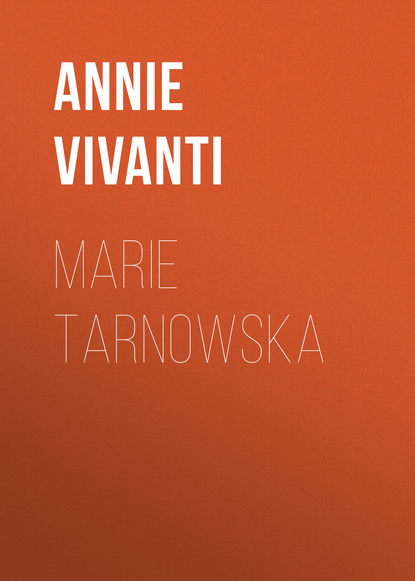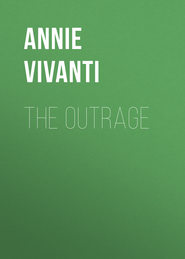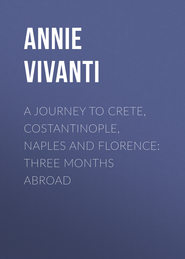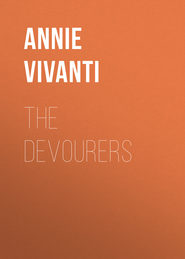По всем вопросам обращайтесь на: info@litportal.ru
(©) 2003-2024.
✖
Marie Tarnowska
Настройки чтения
Размер шрифта
Высота строк
Поля
“What is your name?” he asked the girl.
“Rosalia, at your service, sir,” she replied.
“Very good, Rosalia,” said my husband. “This evening we shall do without you. Possibly in a day or two I may wish to see you again.”
The girl laughed, made a slight curtsey, and went out, closing the door behind her.
“But who is going to do my hair?” I asked, feeling very much out of countenance and shy at remaining alone with him.
“Never mind about your hair,” said Vassili. “Don't be so tedious. You're a little bore.” And he kissed me.
Then he sat down and smoked his cigarette, watching me out of narrowed eyelids as I wandered about the room in great trepidation and embarrassment. I was about to kneel down by the bedside to say my prayers, when he suddenly grasped my wrist and held it tightly.
“What are you doing now?” he inquired.
“I am going to say my prayers,” I replied.
“Don't bother about your prayers,” he said. “Try not to be such an awful little bore. Really you are quite insufferable.”
But I would not have missed my prayers for the world. At home prayers had always been a matter of great importance. Olga and I used to say them aloud in unison morning and evening. And now that Olga was far away I must say them alone. I buried my face in my hands and said them devoutly, with all my heart.
They were, I admit, numerous and long; and they were in many languages, for every nurse or governess that came to us in Otrada had taught us new ones; and Olga and I were afraid to leave any out, lest God should be offended; we were also rather doubtful as to which language He understood the best.
I had just come to an English prayer—
Now I lay me down to sleep
I pray Thee, Lord, my soul to keep.
If I should die before I wake…
(Here Olga and I used always to interpolate a short prayer of our own invention: “Please, dear God, do not on any account let us die to-night. Amen.”)—when Vassili interrupted me.
“Haven't you finished?” he cried, putting his arm round my neck. “You are very tiresome. You bore me to extinction.”
“You bore me!” That was the perpetual refrain of all his days. I always bored him. Perhaps it was not surprising. At seventeen one is not always clever and entertaining, especially outside the family circle. At home I had always been considered rather witty and intelligent, but to Vassili I was never anything but “a dreadful bore.”
When I caught sight of him pinching Rosalia's cheek and I burst into tears: “You are a fearful bore,” he said crossly. If I noticed the scent of musk or patchouli on his coat and ventured to question him about it—“You are an insufferable little bore,” would be all the answer I got. When he went out (taking the music of “My Savage Plains” with him) and stayed away all night, on his return next morning I sobbed out my anguish on his breast. “I must say you bore me to death,” he yawned.
And one day I heard that he had had a child by a German baroness.
At the sight of my paroxysm of despair he grew angry. “What does it matter to you, silly creature, since you have not got one yourself?” he exclaimed. “Wearisome little bore that you are; you can't even have a child.”
I was aghast. What—what did he mean? Why could I not—?
“No! no!” he shouted, with his handsome mouth rounded and open like those of the stone cherubs on the walls of his castle, “you will never have any children. You are not a woman. Your mother herself said so.” And the look which he flashed across my frail body cut me like a sword.
I fell fainting to the ground.
Then he became alarmed. He called everybody. He summoned the whole staff of the hotel. He sent for all the ladies he knew in Kharkoff (and they were many) imploring them all to save me, to recall me to life. When I came to myself the room was filled with women: there was Rosalia, and two Hungarian girls from the adjoining apartment, and there was also the German baroness, and little Julia Terlezkaja, the latest and fairest of my husband's conquests. All these graceful creatures were bending over my couch, while Vassili on his knees with his head buried in the coverlet was sobbing: “Save her! She is dead! I have killed her!”
I put out my hand and touched his hair.
“I am alive,” I said softly; and he threw himself upon me and kissed me. The women stood round us in a semi-circle, gay and graceful as the figures on a Gobelin tapestry.
“I love you,” Vassili was exclaiming; “I love you just as you are. I should hate you to be like everybody else.” And in French he added, looking at Madame Terlezkaja: “C'est très rigolo d'avoir une femme qui n'est pas une femme.”
I hid my face in the pillow, and wept; while the fair Terlezkaja, who seemed to be the kindest of them all, bent over and consoled me.
“Pay no heed to him,” she whispered. “I think he has been drinking a little.”
The door opened. A doctor, who had been sent for by the manager of the hotel, entered with a resolute authoritative air. At the sight of him the women disappeared like a flight of startled sparrows. Of course they took Vassili with them.
To the good old doctor I confided the secret which Vassili had disclosed to me and which was burning my heart.
“I want to have a child, a little child of my own!” I cried.
“Of course. Of course. So you shall,” said the old doctor, with a soothing smile. “There is no reason why you should not. You are a little anemic, that is all.”
He scribbled some prescriptions on his tablets.
“There. You will take all that. And you will go to Franzensbad. Within a year you will be asking me to act as godpapa.”
I took all he prescribed. But I did not go to Franzensbad. Vassili wanted to go to Petersburg, so, of course, it was to Petersburg we went.
The very first evening we were there a number of his friends came to call on him.
I remember, among the rest, a certain German Grand Duke, who, after showing me an infinite amount of attention, drew Vassili aside and spoke to him in undertones. I heard him mention the name of a famous restaurant and the words: “A jolly supper-party to-night—some ravishingly pretty tziganes....” There followed names of men and women whom I did not know, and my husband laughed loudly.
Then the Grand Duke turned to me, and bowing deeply and ceremoniously kissed my hand.
For an instant a frenzied impulse came over me to clutch that well-groomed head and cry: “Wicked man! Why are you trying to lure my husband from me?” But social conventions prevailed over this elementary instinct, and when the Grand Duke raised his patrician head he found me all amiability and smiles.
“She is indeed a bewitching creature!” I heard him mutter to Vassili. “Looks just like one of Botticelli's diaphanous angels. Well then, at eleven o'clock to-night, at the 'Hermitage.'”
Promptly at a quarter to eleven Vassili, sleek, trim and immaculate, kissed my cheek gaily and went out.
I was alone. Alone in the great drawing-room, gorgeous with lights and mirrors and gilded decorations. What was the good of being a bewitching creature? What was the good of looking like one of Botticelli's diaphanous angels?…
V
I rang for my maid, Katja, a good creature, ugly beyond words—and gladly chosen by me on that account—and I told her that she was to undress me for I was going to bed. While she was unfastening my dress I could hear her muttering: “If it were me, I should not go to bed. If it were me, I should put on my diamonds and my scarlet chiffon gown; I should take a good bottle of vitriol in my pocket, and go and see what they were up to.”
“Katja, what are you mumbling? Do you mean to say that you—that you think I ought to go—?”
“Of course,” she cried, and her small squinting eyes shot forth, to the right and left, fierce, divergent flashes of indignation. “Why should my lady not go?”
Why should I not, indeed? Had I not the right—nay, the duty—to follow Vassili? Had I not most solemnly promised so to do, in the little church on the steppes a year ago? “Follow him!” With what tremulous joy had I repeated after the priest those two words of tenacity and submission. Had they no application to the Hermitage restaurant?
“Perhaps I might venture to go,” I murmured, “but, Katja, do not other women always have rouge and powder to put on when they go out? I have nothing.”
“Rosalia, at your service, sir,” she replied.
“Very good, Rosalia,” said my husband. “This evening we shall do without you. Possibly in a day or two I may wish to see you again.”
The girl laughed, made a slight curtsey, and went out, closing the door behind her.
“But who is going to do my hair?” I asked, feeling very much out of countenance and shy at remaining alone with him.
“Never mind about your hair,” said Vassili. “Don't be so tedious. You're a little bore.” And he kissed me.
Then he sat down and smoked his cigarette, watching me out of narrowed eyelids as I wandered about the room in great trepidation and embarrassment. I was about to kneel down by the bedside to say my prayers, when he suddenly grasped my wrist and held it tightly.
“What are you doing now?” he inquired.
“I am going to say my prayers,” I replied.
“Don't bother about your prayers,” he said. “Try not to be such an awful little bore. Really you are quite insufferable.”
But I would not have missed my prayers for the world. At home prayers had always been a matter of great importance. Olga and I used to say them aloud in unison morning and evening. And now that Olga was far away I must say them alone. I buried my face in my hands and said them devoutly, with all my heart.
They were, I admit, numerous and long; and they were in many languages, for every nurse or governess that came to us in Otrada had taught us new ones; and Olga and I were afraid to leave any out, lest God should be offended; we were also rather doubtful as to which language He understood the best.
I had just come to an English prayer—
Now I lay me down to sleep
I pray Thee, Lord, my soul to keep.
If I should die before I wake…
(Here Olga and I used always to interpolate a short prayer of our own invention: “Please, dear God, do not on any account let us die to-night. Amen.”)—when Vassili interrupted me.
“Haven't you finished?” he cried, putting his arm round my neck. “You are very tiresome. You bore me to extinction.”
“You bore me!” That was the perpetual refrain of all his days. I always bored him. Perhaps it was not surprising. At seventeen one is not always clever and entertaining, especially outside the family circle. At home I had always been considered rather witty and intelligent, but to Vassili I was never anything but “a dreadful bore.”
When I caught sight of him pinching Rosalia's cheek and I burst into tears: “You are a fearful bore,” he said crossly. If I noticed the scent of musk or patchouli on his coat and ventured to question him about it—“You are an insufferable little bore,” would be all the answer I got. When he went out (taking the music of “My Savage Plains” with him) and stayed away all night, on his return next morning I sobbed out my anguish on his breast. “I must say you bore me to death,” he yawned.
And one day I heard that he had had a child by a German baroness.
At the sight of my paroxysm of despair he grew angry. “What does it matter to you, silly creature, since you have not got one yourself?” he exclaimed. “Wearisome little bore that you are; you can't even have a child.”
I was aghast. What—what did he mean? Why could I not—?
“No! no!” he shouted, with his handsome mouth rounded and open like those of the stone cherubs on the walls of his castle, “you will never have any children. You are not a woman. Your mother herself said so.” And the look which he flashed across my frail body cut me like a sword.
I fell fainting to the ground.
Then he became alarmed. He called everybody. He summoned the whole staff of the hotel. He sent for all the ladies he knew in Kharkoff (and they were many) imploring them all to save me, to recall me to life. When I came to myself the room was filled with women: there was Rosalia, and two Hungarian girls from the adjoining apartment, and there was also the German baroness, and little Julia Terlezkaja, the latest and fairest of my husband's conquests. All these graceful creatures were bending over my couch, while Vassili on his knees with his head buried in the coverlet was sobbing: “Save her! She is dead! I have killed her!”
I put out my hand and touched his hair.
“I am alive,” I said softly; and he threw himself upon me and kissed me. The women stood round us in a semi-circle, gay and graceful as the figures on a Gobelin tapestry.
“I love you,” Vassili was exclaiming; “I love you just as you are. I should hate you to be like everybody else.” And in French he added, looking at Madame Terlezkaja: “C'est très rigolo d'avoir une femme qui n'est pas une femme.”
I hid my face in the pillow, and wept; while the fair Terlezkaja, who seemed to be the kindest of them all, bent over and consoled me.
“Pay no heed to him,” she whispered. “I think he has been drinking a little.”
The door opened. A doctor, who had been sent for by the manager of the hotel, entered with a resolute authoritative air. At the sight of him the women disappeared like a flight of startled sparrows. Of course they took Vassili with them.
To the good old doctor I confided the secret which Vassili had disclosed to me and which was burning my heart.
“I want to have a child, a little child of my own!” I cried.
“Of course. Of course. So you shall,” said the old doctor, with a soothing smile. “There is no reason why you should not. You are a little anemic, that is all.”
He scribbled some prescriptions on his tablets.
“There. You will take all that. And you will go to Franzensbad. Within a year you will be asking me to act as godpapa.”
I took all he prescribed. But I did not go to Franzensbad. Vassili wanted to go to Petersburg, so, of course, it was to Petersburg we went.
The very first evening we were there a number of his friends came to call on him.
I remember, among the rest, a certain German Grand Duke, who, after showing me an infinite amount of attention, drew Vassili aside and spoke to him in undertones. I heard him mention the name of a famous restaurant and the words: “A jolly supper-party to-night—some ravishingly pretty tziganes....” There followed names of men and women whom I did not know, and my husband laughed loudly.
Then the Grand Duke turned to me, and bowing deeply and ceremoniously kissed my hand.
For an instant a frenzied impulse came over me to clutch that well-groomed head and cry: “Wicked man! Why are you trying to lure my husband from me?” But social conventions prevailed over this elementary instinct, and when the Grand Duke raised his patrician head he found me all amiability and smiles.
“She is indeed a bewitching creature!” I heard him mutter to Vassili. “Looks just like one of Botticelli's diaphanous angels. Well then, at eleven o'clock to-night, at the 'Hermitage.'”
Promptly at a quarter to eleven Vassili, sleek, trim and immaculate, kissed my cheek gaily and went out.
I was alone. Alone in the great drawing-room, gorgeous with lights and mirrors and gilded decorations. What was the good of being a bewitching creature? What was the good of looking like one of Botticelli's diaphanous angels?…
V
I rang for my maid, Katja, a good creature, ugly beyond words—and gladly chosen by me on that account—and I told her that she was to undress me for I was going to bed. While she was unfastening my dress I could hear her muttering: “If it were me, I should not go to bed. If it were me, I should put on my diamonds and my scarlet chiffon gown; I should take a good bottle of vitriol in my pocket, and go and see what they were up to.”
“Katja, what are you mumbling? Do you mean to say that you—that you think I ought to go—?”
“Of course,” she cried, and her small squinting eyes shot forth, to the right and left, fierce, divergent flashes of indignation. “Why should my lady not go?”
Why should I not, indeed? Had I not the right—nay, the duty—to follow Vassili? Had I not most solemnly promised so to do, in the little church on the steppes a year ago? “Follow him!” With what tremulous joy had I repeated after the priest those two words of tenacity and submission. Had they no application to the Hermitage restaurant?
“Perhaps I might venture to go,” I murmured, “but, Katja, do not other women always have rouge and powder to put on when they go out? I have nothing.”








